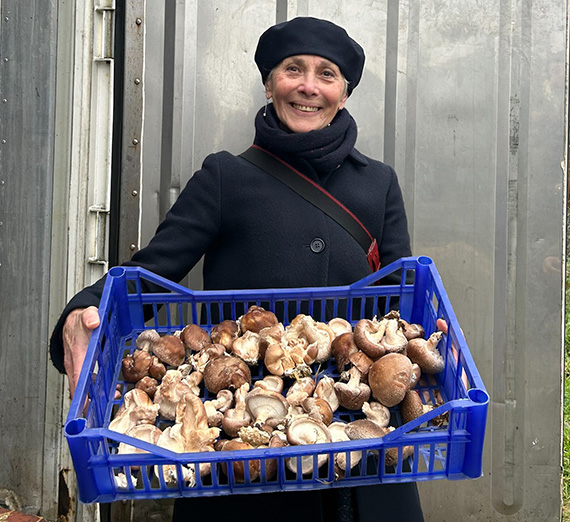Meet Tamara Evans

This month's installment in the ongoing series of Q&A sessions from the Office of Sustainability catches up with Tamara Evans. Keep reading to learn about Tamara, her views on sustainability, and how she implements sustainable practices into her daily life.
What is your position/department/year/major/club affiliation at Gonzaga?
Professor in business at Gonzaga in Florence.
What does sustainability mean to you?
I will use the official definition of sustainability which I believe in and use in my lectures which is “fulfilling the needs of current generations without compromising the needs of future generations”, unfortunately although my generation was aware of it, we did very little to carry it out.
How have you been involved in promoting sustainability on campus?
Encouraged students to promote sustainability in both Florence campus and at pensione by demanding waste baskets to differentiate wastes - that is paper, plastic, and non-differentiated waste.
What are some things you do in your personal life to live sustainably?
My philosophy is to buy and use what I need, minimize waste, and never be tempted to buy more than what is needed (alas, not always successful).
Also, differentiate all my household waste and dispose of it in the correct public waste containers provided by the local authorities. Also, buy organic products (whenever possible) and never buy or use synthetic goods.
How could Gonzaga continue to improve its sustainability efforts?
Encourage students from orientation to be sustainable and have guest speakers to discuss with students the importance of acting sustainably.
How will you continue to promote sustainability at Gonzaga?
Promote the appointment of a paid student intern who would work with fellow students on GIF’s campus to promote sustainability.
How do you see sustainability intersecting with social justice issues on an institutional, country, or global scale?
As you know from course topics the environment, fairness and justice are interrelated, and I’m a great believer in promoting both knowing that in most cases, deprived groups whether nationally or internationally are exposed to environmental risks while they are also more vulnerable to its effects.
